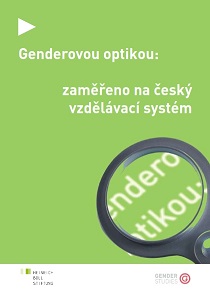
We kindly inform you that, as long as the subject affiliation of our 300.000+ articles is in progress, you might get unsufficient or no results on your third level or second level search. In this case, please broaden your search criteria.


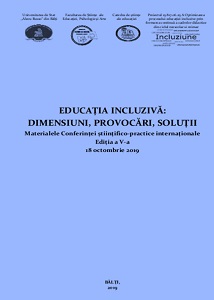
Dieser Artikel befasst sich mit der Beseitigung von Störungen der Aussprache bei Kindern. Von der Autorin wurde die Methodik der Korrekturentwicklungsarbeit zur Beseitigung von Störungen der Aussprache von Sibilanten abgefasst, die auf einem System von Trainingsübungen basiert.
More...
This article deals with the problem of the role of the school psychologist in the psychological counseling process of children with special educational needs. In the context of inclusive education, the services of the psychological counseling office focus on supporting the process of developing the student's personality as well as providing the psychological support to his family.
More...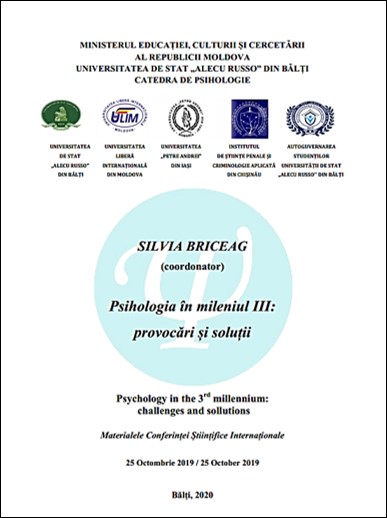
As the day goes by, the issue of people with disabilities grows larger. We note that the number of people with disabilities is increasing. Whether it is an acquired cause (accidents) or the cause is congenital, these people are incapacitated and their lives differ significantly from the lives of other people. Possibly, knowing what the social representations of people with disabilities are, we will understand why, however, these people are most often discriminated against in society. Speaking about the student environment, these representations regarding people with disabilities differ from student to student.
More...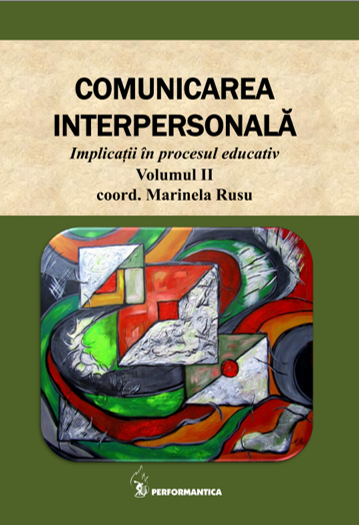
The present paper develops a system of ideas concerning the impact of emotional culture on teachers' professional performance and career advancement reflected in the manifestation of affective social competencies recognized in the scientific community as competencies specific to the teaching profession, stipulated in education policy documents as teachers' professional competencies
More...
The present paper discusses the key aspects of fostering emotional discipline by manifesting a culture of tolerance in the context of a multicultural society. Acceptance of cultural diversity involves balanced interactions based on emotional culture which generates psychological comfort, resulted from the effects of emotional discipline on communication; hence, reconsidering indelibly the beliefs about the benefits of tolerant communication becomes imperative
More...
Each of us need a sense of ourselves, who we are as an identity among many other people. Identity development occurs through one’s life span, but most emphasized occur during adolescence period when youth encounter the most challenging transition period and they are struggled to find, understand and shape a sense of who they are. The physical, cognitive and socio-emotional changes have addressed the influence over the perception of self in adolescence
More...
The article presents the results of an experimental research of anxiety and fears at preschoolers. In order to investigate the anxiety and fears we applied Anxiety test for children by R. Temml, V. Amen și M. Dorca and Unfinnished sentences test by А. И Захаров. As results we established that 61,95% of preschoolers have a high level of anxiety. Besides anxiety preschoolers experience different fears: fear of punishment / verbal violence, fear of terrible scenes from movies, fear of punishment / physical violence, and fear of the dark.
More...
The article presents an experimental research of personality of adolescent women with eating problems. The research included 150 female teenagers aged 14, 15, 16, 17, 18 and 19 years. The EAT-26 questionnaire allowed us to highlight the attitude of adolescent women towards their own weight. Applying the test "How strong is the self-image?" of Mitrofan we have identified the degrees of contouring of the self-image. With the help of the "Self-assessment questionnaire" we determined how important self-assessment of body image in adolescents is. In order to establish how much importance teenage girls give to their physical appearance, we used the “Questionnaire on the importance of appearance”.
More...
Individuals with intellectual disability are affected negatively emotionally due to their failure experiences, negative learning experiences and inadequacies in their social skills. Such kind of emotional affection causes these individuals to experience intense emotions such as; intense failure expectation, shyness in taking responsibility for life, limited self-regulation skills, negative self-perception, low motivation, loneliness, fear, etc… Therefore, there are points to be considered regarding the emotional characteristics of individuals with intellectual disability. Some environmental conditions that affect the emotional characteristics of individuals with intellectual disability are as follows: negative feedback as a result of their failures, repeated experiences of failure and labeling, excessive manipulation of different positive or negative outcomes in their lives by other individuals, intense external control, not being given the opportunity to experience, excessive reinforcement or no reinforcement at all. In addition, it is possible to sum up the emotional characteristics of individuals with intellectual disability under the following headings: learned helplessness, self-concept, locus of control, taking responsibility for life and self-direction, incentive/motivation, external orientation, failure expectation, and personality traits. Revealing the emotional characteristics of individuals with intellectual disability and conducting studies on them play an important role in leading a normal life of these individuals.
More...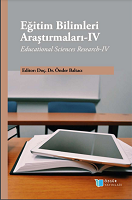
The World Health Organization defines a healthy individual as not only a state of physiological well-being without any disease or disability, but also as a holistic state of well-being that includes social and mental aspects. At this point, it can be evaluated that mental health and mental health problems are at least as crucial as illness or disability in complying with the definition of a healthy individual. Mental health problems can affect individuals at all stages of development. Theorists focus on the impact of early childhood development processes on the rest of life, with an emphasis on early childhood problems and early interventions. In this context, this study aimed to introduce the concepts of school refusal, anxiety, and emotion regulation as early-term emotional problems. The social circle of the child, whose social circle has been limited to her/his family until now, is expanding with processes such as school. This, in particular, can cause situations such as anxiety. It can be said that the emotional problems that are likely to be experienced in the pre-school period, when they expand in various ways, are brought to the reader’s attention. School refusal, an anxiety-based situation, is considered a school attendance problem that can lead to severe consequences such as school dropout. In this context, the similarity between school refusal and separation anxiety symptoms can occasionally make it difficult to recognize these two problems. However, while separation anxiety is seen with more diverse stimuli, anxiety and avoidance reactions are observed against the school- and school-related stimuli in the case of school refusal. Against these situations, it is recommended to focus on children's emotional regulation difficulties and intervene.
More...
Unlike other stakeholders, psychological counselors working in educational institutions are a professional group that has communication and responsibility with all individuals, from students to teachers, administrative staff and parents. Guidance teachers, who carry out the most important function of student personality services, as suggested by the modern education approach, strive for the individual development of the student. In this direction, it faces various difficulties. When the qualifications that a profession presented by the researchers should have and the objectives on which the Psychological Counseling and Guidance Association agree, together, it is seen that the necessity of ethical principles is emphasized in a common way. The healthy practice of a school counselor's profession requires personal supervision supported by internalized ethical principles. It is emphasized that these ethical principles should not be limited to the conscience of individuals, but that these ethical principles should be applicable and that the practices should be supervised by sanctions. Within the scope of this study, it is aimed to examine the opinions of guidance teachers working in educational institutions about the difficulties they experience within the scope of professional ethics and legal issues. For this purpose, it was presented by taking the opinions of 10 guidance teachers and placing them in the relevant ethical code category. Qualitative research method and in-depth interview technique were used in order to collect more detailed and in-depth data about the ethical problems and difficulties experienced by psychological counselors/guidance teachers regarding the administration of the institution they work, students, parents and their fields. As a result, guidance teachers; Their experiences about the difficulties they experienced in Mandatory Reporting of Child Sexual Abuse, Informed Consent, Confidentiality-Privacy, Burnout, Consultation, Transfer-Counter-Transference, Bidirectional Relationships, Borders and Virtual Environments are presented by interpreting. Among the aforementioned codes, it was found that the subject of Confidentiality and Privacy was the most difficult subject.
More...
The aim of this study is to examine the studies on the use of self-management practice in helping students with autism spectrum disorder (ASD) acquire the behavior of being interested in activities. Within the scope of the study, EBSCO Host, Springerlink, Jstor and Web of Science databases were searched using the keywords "self-management", "on-task", "task engament" and "autism spectrum disorder". As a result of the detailed search, it was determined that there were 319 articles. As inclusion criteria in the study, (a) students with ASD are participating, (b) preferring the teaching practice in which self-management components are used, (c) interest in activity as a target behavior (d) designing with one of the single-subject research models, (e) electronic data and (f) publication of articles between January 2000 and August 2022. As a result of the detailed examination, 14 articles were included in the scope of the research and analyzed. When the findings were examined, it was determined that students between the ages of 8-18 with ASD participated in all of the studies, teaching activities were carried out in general education and special education classes, technology-based applications were generally used as a means of self-management, and there was an increase in the behavior of engaging in activities with the use of self-management application. The findings were discussed and suggestions were made for future research.
More...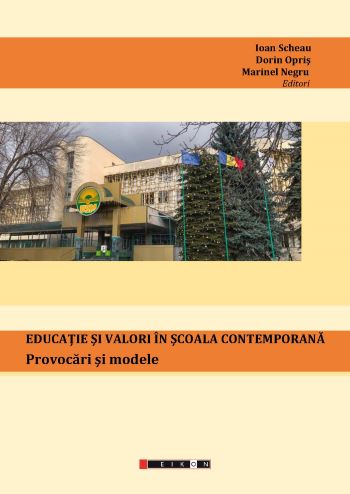
In order to obtain information regarding the importance of carrying out moral education activities in kindergarten, of carrying out educational projects in this field, of approaching the curriculum for early education regarding the existence of elements of moral education or the need to introduce such a field, we interviewed eight kindergarten directors and two school inspectors for early education and religious discipline. Following the analysis and interpretation of the answers provided, it can be found that there is a great need to carry out moral education activities in kindergartens, all the executives interviewed consider that moral education is not given its rightful place, the first place, and in the curriculum for early education in force there are not enough examples of moral education activities. At the same time, the respondents provide examples of moral values that should be promoted among preschoolers, they support the importance of using the moral model within the activities and claim the urgent need to carry out educational projects at the national level, in the field of moral education. A fact highlighted by this interview is the need to regulate moral education in preschool education, by introducing this field in the curriculum, because at the moment the carrying out of this type of activities remains at the discretion of each individual educator.
More...
In this analysis, we investigate whether the gaze is a simple ocular act or whether the eyes translate it, like a screen, into a two-sided act of subjectivity in relation to the Other. This can induce anxiety and shame in the disintegration of one's own universe, as highlighted by Sartre (eyes peering through the door frame, for fear of being seen in embarrassing poses); it can "touch" what it sees, taking place in a space of tangibility, as a palpation according to Merleau-Ponty; or it can be a call from the limits of the ego to the infinity of the Other, within an ethically grounded framework, as argued by Levinas. In the context of formal distance learning sessions, the act of looking is mediated by the webcam's "eye" – the webcam's pupil takes the place of the direct gaze, manifesting certain influences to both sides, observable in perspective. The teacher directs the gaze to the center of the frame, the circular center of the webcam which assimilates and transposes it onto the student's screen. The latter receives it in the absence of optical reciprocity, creating a unique situation where we look from one point on the screen, but are observed from all sides.
More...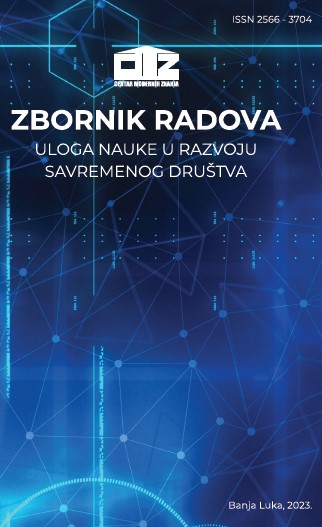
In this paper, the author aims to contribute in the answer to the question of how to include pupils in the classroom teaching process, that is, what are the determinants of their inclusion. The answers to these questions was gained in experimental ways. The experiment was made according to the existing curriculum in BiH. The work was done in 20 hours time, ten in mathematics, and ten in the subject of my environment. Significant results have been made of which these results are in the rise: (1) expectations of success, (2) challenge and (3) mastering the target orientation of students. Reduced results are: (1) a motivation and (2) student activities during classes. Why activities, during classes of the conditions in which the teacher was trying to get students to work independently are lessened, it remains to be answered in some future research.
More...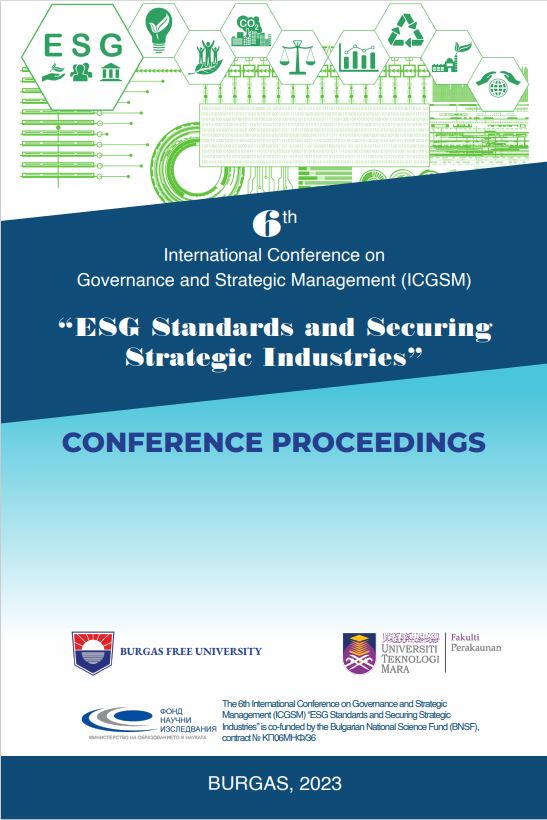
The knowledge triangle concept refers to necessity to improve the impact of investments in terms of the three activities — education, research and innovation. The effectiveness of the activities implemented in the knowledge triangle is a process based on the recognized need for cooperation between all interested parties. The process of awareness itself is slow and implies changes - in thinking, in organization and administration, in inclusion and participation in various activities - project, qualification, scientific, etc. In this context, we can talk about a practical realization of the concept of the triangle of knowledge. Modern education is oriented towards digitization and related methods and means, because the students who are educated today are representatives of the so-called "alpha" generation. a generation that grows and develops in the conditions of Internet communications, social networks and artificial intelligence. The representatives of the "alpha" generation seek information and learn in a different way compared to previous generations. In this sense, the Bulgarian school should become closer to the children's natural environment through the wider application of various educational models in training. And everything said so far is related to the role of the teacher.
More...
The preschool age is suitable for laying the foundations of both cognitive skills and entrepreneurial competences and emotional intelligence in children. What we bet on is introducing young children to colors, because from a psychological point of view they strongly influence emotions. By developing the emotional intelligence of children already at preschool age, we can also work on forming the other key competencies of the 11th century - critical thinking, creativity, teamwork, entrepreneurship. The ability to read one's own and other people's emotions, not to be afraid of one's emotions and not to suppress them, to use and accept them as a normal part of one's life is the beginning of the formation of other competencies as well. In this report we present innovative activities from the eTwinning project "Magical World of Colors". The results we focused our attention on are for children to become familiar with the main colors, their shades, qualities and properties, in order to contribute to the construction of an artistic sense, an aesthetic sense and mastery of knowledge and skills that would lead to the successful formation of key competencies.
More...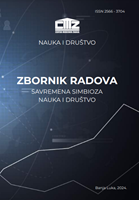
The Program for International Student Assessment (PISA) organized by the Organization for Economic Co-operation and Development (OECD), in addition to giving us an insight into the assessment of knowledge and skills of fifteen-year-olds around the world, also shows us that the countries that achieve the best results are located in different regions and parts of the world, and sometimes they have completely different cultures. The goal of this paper is to show how and in what way the education system works in South Korea, which for the last ten years has been at the very top of the most successful education systems in the world. In the paper, the authors present the structure and organization of the educational system, and their characteristics, but also shed light on the dilemma of what is actually the secret of the success of their educational system.
More...